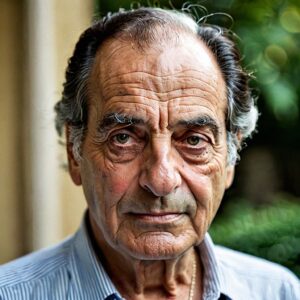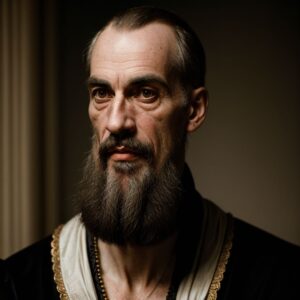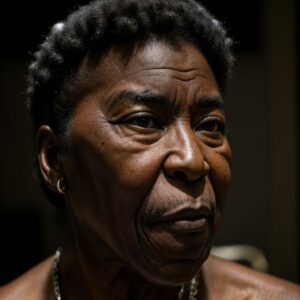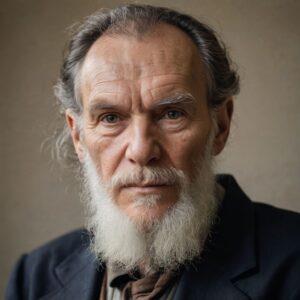
I’ve always been drawn to the quiet, methodical nature of Gregor Mendel’s work. As a writer, I appreciate how he approached his research with precision and patience, like a gardener tending to the intricate patterns of a plant’s growth.
What fascinates me is how Mendel’s experiments on pea plants led him to discover the fundamental laws of inheritance, but also how those same discoveries were met with indifference for decades. It’s as if he was speaking in a language that no one else could hear, or at least, not until much later. This makes me think about my own experiences trying to communicate complex ideas through writing.
I recall struggling to convey the nuances of my thoughts and emotions on the page, only to feel like I’m being met with silence or dismissal. It’s a feeling that can be disorienting, like being lost in a dense forest without a clear path forward. But Mendel persevered, driven by his curiosity about the natural world.
I wonder if there was something about Mendel’s personality that allowed him to focus on his work for so long, even when it seemed like no one else was paying attention. Was he stubbornly single-minded, or did he genuinely believe in the importance of his research? I imagine him as a quiet, introspective person, content with the solitude of his monastery garden.
One thing that surprises me is how little we know about Mendel’s personal life outside of his scientific contributions. It’s almost as if he stepped into his role as “the father of genetics” and stayed there, without much depth or context. This makes me feel like I’m reading a character sketch rather than a full portrait.
I find myself drawn to the mystery surrounding Mendel’s motivations. Was it solely the pursuit of knowledge that drove him, or was there something else at play? Did he see his research as a way to contribute to the greater good, or was it more personal? I think about how my own motivations can be tricky to pin down – sometimes I write because I want to share my thoughts with others, and other times it’s just for myself.
The fact that Mendel’s work wasn’t widely recognized until long after his death is both fascinating and disheartening. It makes me wonder what other quiet discoveries have been made, only to go unnoticed or unappreciated. And yet, it also gives me hope – if someone like Mendel can leave such a profound mark on the world without fanfare, maybe my own writing can too.
I’m not sure where this line of thinking will lead, but for now, I’m content to follow the trail of curiosity that Mendel’s story has set off in my mind. It’s a reminder that even the most seemingly obscure ideas or individuals can hold hidden depths and complexities waiting to be explored.
As I delve deeper into Mendel’s story, I find myself thinking about the tension between his quiet, methodical nature and the profound impact of his work. It’s almost as if he was a paradox – a man who reveled in solitude yet left an indelible mark on the world.
I wonder if this dichotomy is something that resonates with me, too. As a writer, I often find myself torn between the desire to share my thoughts and feelings with others, and the need to retreat into my own inner world for solace. It’s as if I’m caught between two opposing forces – the urge to communicate and connect, and the impulse to withdraw and observe.
Mendel’s story makes me think about the value of this kind of tension in creative work. Perhaps it’s not a bad thing when our ideas and emotions feel like they’re at odds with each other; maybe that’s where the most interesting things come from. I think about my own writing, how often I’ve struggled to balance the need for clarity and precision with the desire to capture the messy, complicated nature of human experience.
This paradox also makes me consider the role of solitude in creative work. Mendel spent years working alone in his monastery garden, pouring over his data and observations. It’s easy to romanticize this kind of isolation, but I suspect it was just as much a struggle for him as it is for me when I’m stuck on a piece or feeling overwhelmed by my own thoughts.
I imagine what it would be like to have Mendel’s dedication, his ability to focus for hours on end without distraction. But I also wonder if that kind of solitude has its costs – the erasure of personal relationships, the loss of perspective and context. As someone who values connection and community, I’m not sure I could replicate Mendel’s level of isolation even if I wanted to.
And yet, as I continue to explore Mendel’s story, I find myself drawn back to the idea that his quiet, methodical nature was a key part of his success. Perhaps it’s not about finding some ideal balance between solitude and connection, but rather about embracing the complexities of our own personalities and creative processes. Maybe the most important thing is to be true to ourselves, even when that means being messy or contradictory – just like Mendel’s work, which was both precise and profound, simple and revolutionary all at once.
As I delve deeper into Mendel’s story, I find myself thinking about the relationship between his scientific discoveries and his spiritual life as a monk. It’s striking to me how he approached his research with a sense of reverence, treating each experiment as an act of worship. He saw the natural world as a reflection of God’s design, and his work was a way of uncovering that design.
I wonder if this perspective gave him a unique sense of purpose and meaning in his life. As someone who writes for personal reasons, I often struggle to find my own sense of purpose or significance in what I’m doing. It’s easy to get caught up in the doubts and fears that creep in when I’m writing about things that feel abstract or intangible.
But Mendel’s story suggests that there’s a different way to approach this kind of work. Instead of trying to prove something to others, he focused on understanding the world around him as deeply as possible. He didn’t try to impose his own will on nature; instead, he sought to submit himself to its rhythms and patterns.
This idea resonates with me because it speaks to my own desire for authenticity in my writing. I’ve always felt like I’m trying to tap into something deeper and more meaningful when I write – something that connects me to others and to the world around me. But Mendel’s approach suggests that this kind of connection can be found by embracing our limitations and vulnerabilities, rather than trying to overcome them.
As I think about this, I realize that I’ve often been tempted to romanticize Mendel’s life as a monk. It sounds idyllic – spending his days tending to the garden, conducting experiments, and contemplating the mysteries of God. But what about the hard work and dedication that went into those moments? What about the struggles he must have faced in his personal relationships or in navigating the complexities of monastery life?
I’m reminded of my own tendency to idealize creative lives – thinking that artists are somehow more free or liberated than others, when in reality they’re just as bound by their own limitations and fears. Mendel’s story is a reminder that even the most seemingly perfect or serene lives have their own contradictions and complexities.
And yet, despite these complexities, I still find myself drawn to the idea of embracing our vulnerabilities and imperfections in our creative work. It’s a riskier proposition, perhaps – one that requires us to be more honest and open with ourselves and others. But it’s also a more authentic way of creating, one that acknowledges the messiness and uncertainty of life.
As I ponder this, I’m struck by the way Mendel’s story has shifted my perspective on my own writing. It’s not just about conveying ideas or emotions; it’s about being present in the world around me – observing its rhythms and patterns, and trying to capture their beauty and complexity on the page.
I think back to the countless hours I spent as an undergraduate, pouring over texts and notes, trying to make sense of the world through my own writing. It was a time of intense self-discovery, marked by moments of clarity and conviction that felt like they could lift off the page and into reality.
But it was also a time of struggle – when every sentence seemed like a battle, and every word a carefully guarded secret. I often wonder if Mendel faced similar struggles as he worked on his pea plant experiments. Did he ever feel like he was staring at a blank slate, with no clear direction or purpose?
As I reflect on my own writing journey, I realize that it’s been marked by moments of both quiet introspection and grandiose ambition. There have been times when I’ve felt like I’m tapping into something deeper and more meaningful – like I’m channeling the words directly from my soul onto the page.
And then there are the moments when I feel lost, when every sentence seems forced or artificial. When that happens, I often find myself drawing on Mendel’s example – taking a step back, re-centering myself in the present moment, and letting the world around me speak for itself.
It’s funny how his quiet, methodical nature has become a kind of touchstone for me – a reminder to slow down, observe, and listen. When I feel like I’m getting caught up in my own ego or anxiety, I try to recall the image of Mendel tending to his garden, working with precision and patience.
That’s not to say it’s always easy. There are times when I feel like I’m stuck between these two opposing forces – the desire to create something beautiful and meaningful, and the fear that my work will be met with indifference or even rejection.
But as I continue to explore Mendel’s story, I find myself drawn back to his emphasis on humility and reverence. He approached his research as an act of worship, treating each experiment as a way of uncovering God’s design in the natural world.
It strikes me that this kind of approach could be applied to my own writing – not necessarily as a matter of faith or spirituality, but as a way of cultivating a deeper sense of respect and awe for the world around me. When I write from a place of humility and reverence, I find that my words take on a new kind of weight and significance.
It’s almost as if I’m tapping into a larger narrative – one that transcends my own personal story or even the specific topic I’m writing about. It’s a feeling of being part of something greater than myself, connected to the world in ways both subtle and profound.
And yet, this realization also brings up questions and doubts. Can I truly cultivate this kind of reverence and humility in my writing? Or will it always feel like a performance or an affectation?
As I ponder these questions, I find myself returning to Mendel’s example – not as some kind of idol or role model, but as a fellow traveler on the journey of creative discovery. His story has shown me that even the most seemingly obscure ideas or individuals can hold hidden depths and complexities waiting to be explored.
It’s a reminder that writing is never just about conveying information or expressing ourselves; it’s also about tapping into our own vulnerabilities and imperfections – and finding connection with others in the process.
As I continue to reflect on Mendel’s story, I’m struck by the way his emphasis on humility and reverence has made me think about my own approach to writing. It’s not just about conveying information or ideas; it’s also about cultivating a deeper sense of respect and awe for the world around me.
I think back to the times when I’ve felt most connected to my work, when every word seemed to flow effortlessly onto the page. Those moments were often characterized by a sense of wonder and curiosity – a feeling that I was tapping into something greater than myself, something that connected me to the world in ways both subtle and profound.
But those moments are also fleeting, and I’ve learned to temper my expectations when it comes to writing. It’s not always easy to access that kind of flow or connection; sometimes it feels like I’m struggling just to put one sentence together.
In those moments, Mendel’s example is a reminder that even the most seemingly insignificant ideas or observations can hold hidden depths and complexities waiting to be explored. His story shows me that writing is never just about producing some finished product; it’s also about the journey itself – the process of discovery, experimentation, and growth.
I wonder if this is why I’ve always been drawn to the concept of “slow writing.” It’s not just about taking my time or being more deliberate in my approach; it’s also about cultivating a deeper sense of patience and reverence for the creative process. When I write slowly, I feel like I’m allowing myself to tap into the rhythms and patterns of the world around me – to listen to the whispers of the universe, as it were.
It’s funny how this kind of approach can be both calming and unsettling at the same time. On the one hand, it allows me to connect with my own inner world in a way that feels deeply satisfying; on the other hand, it also makes me feel like I’m exposing myself to the world in ways that can be both vulnerable and terrifying.
As I ponder this, I think about the relationship between writing and vulnerability. Mendel’s story suggests that being vulnerable is not just about sharing our personal stories or emotions with others; it’s also about being open to the unknown, to the mysteries of the natural world, and to the complexities of human experience.
This idea resonates deeply with me because I’ve always felt like I’m trying to navigate a kind of creative tension between vulnerability and control. As a writer, I want to be able to convey my thoughts and feelings in a way that feels authentic and honest; at the same time, I also want to maintain some sense of control over the narrative, to shape it into something coherent and meaningful.
But Mendel’s example suggests that this tension is not necessarily something to be resolved or overcome. Instead, it’s something to be embraced – something that can lead us deeper into our own vulnerabilities and imperfections, and ultimately, into a more authentic connection with the world around us.
As I continue to explore this idea, I’m struck by the way Mendel’s story has shifted my perspective on the role of uncertainty in creative work. It’s not just about being uncertain or unsure; it’s also about embracing that uncertainty as a source of growth and discovery.
This realization is both liberating and terrifying at the same time. On the one hand, it allows me to let go of some of my need for control or precision; on the other hand, it also makes me feel like I’m stepping into the unknown with no clear map or guide.
But as I reflect on Mendel’s story, I realize that this kind of uncertainty is not necessarily a bad thing. In fact, it may be one of the most powerful catalysts for creativity and growth – a reminder that writing is never just about producing some finished product; it’s also about the journey itself, the process of discovery, experimentation, and growth.
As I ponder this, I’m reminded of the countless hours I spent as an undergraduate, pouring over texts and notes, trying to make sense of the world through my own writing. It was a time of intense self-discovery, marked by moments of clarity and conviction that felt like they could lift off the page and into reality.
But it was also a time of struggle – when every sentence seemed like a battle, and every word a carefully guarded secret. I often wonder if Mendel faced similar struggles as he worked on his pea plant experiments. Did he ever feel like he was staring at a blank slate, with no clear direction or purpose?
As I reflect on my own writing journey, I realize that it’s been marked by moments of both quiet introspection and grandiose ambition. There have been times when I’ve felt like I’m tapping into something deeper and more meaningful – like I’m channeling the words directly from my soul onto the page.
And then there are the moments when I feel lost, when every sentence seems forced or artificial. When that happens, I often find myself drawing on Mendel’s example – taking a step back, re-centering myself in the present moment, and letting the world around me speak for itself.
It’s funny how his quiet, methodical nature has become a kind of touchstone for me – a reminder to slow down, observe, and listen. When I feel like I’m getting caught up in my own ego or anxiety, I try to recall the image of Mendel tending to his garden, working with precision and patience.
That’s not to say it’s always easy. There are times when I feel like I’m stuck between these two opposing forces – the desire to create something beautiful and meaningful, and the fear that my work will be met with indifference or even rejection.
But as I continue to explore Mendel’s story, I find myself drawn back to his emphasis on humility and reverence. He approached his research as an act of worship, treating each experiment as a way of uncovering God’s design in the natural world.
It strikes me that this kind of approach could be applied to my own writing – not necessarily as a matter of faith or spirituality, but as a way of cultivating a deeper sense of respect and awe for the world around me. When I write from a place of humility and reverence, I find that my words take on a new kind of weight and significance.
It’s almost as if I’m tapping into a larger narrative – one that transcends my own personal story or even the specific topic I’m writing about. It’s a feeling of being part of something greater than myself, connected to the world in ways both subtle and profound.
And yet, this realization also brings up questions and doubts. Can I truly cultivate this kind of reverence and humility in my writing? Or will it always feel like a performance or an affectation?
As I ponder these questions, I find myself returning to Mendel’s example – not as some kind of idol or role model, but as a fellow traveler on the journey of creative discovery. His story has shown me that even the most seemingly obscure ideas or individuals can hold hidden depths and complexities waiting to be explored.
It’s a reminder that writing is never just about conveying information or expressing ourselves; it’s also about tapping into our own vulnerabilities and imperfections – and finding connection with others in the process.
Related Posts































